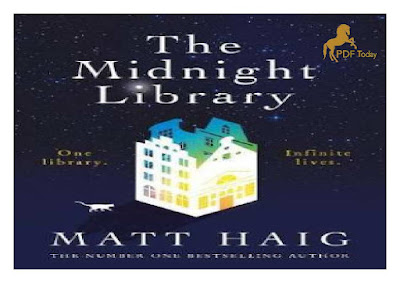What Did COVID Do to Friendships?
A little over a yr in the past, close the delivery of quarantine, an acquaintance introduced, on Twitter, that she changed into leaving Twitter. She’d had an outstanding run however decided that she may do extra by using being on-line less. I found myself sliding into this close-stranger’s D.M.s, confessing that I’d miss her; in its place of deflecting with formal niceties, she asked for my email. inside months, we advanced to periodic mobilephone calls, after which to daily texting—an escalation in intimacy that feels interesting no longer only all the way through the digital age however in this past yr-plus of social distancing.
We nevertheless text each day. “who're you messaging?” my boyfriend asks. “Is it her once more?” He leans over and eyes the everyday avatar winking on the accurate of my telephone. This scene has repeated itself all through the previous 12 months. Whereas my boyfriend has yet to accuse me of carrying on an affair, he did, at one element, take a seat me down with a straight face to claim he was starting to consider jealous.
In his essay “Friendship,” from 1841, Ralph Waldo Emerson starts with a parable: a “counseled stranger” arrives at one other’s condominium, representing “simplest the respectable and new.” Brimming with expectant generosity, both take to each other: “We speak more desirable than we are wont. we've the nimblest fancy, a richer memory, and our dumb satan as taken depart for the time.” but, after some dinner and some more speak, “the stranger begins to intervene his partialities, his definitions, his defects, into the conversation,” and then, , “it's all over the place.” The simplest buddy price having, Emerson tells us, is one who continues to be a little unknown.
All the way through “Friendship,” Emerson burrows deeper into this tension between the attractive stranger and the overly regularly occurring chum, between an idealized abstraction and the person who swings with the aid of unannounced to eat all of your crackers. Enduring friendships inhabit the contradiction between absence and immediacy—“the systole and diastole of the coronary heart,” as Emerson puts it, or “the ebb and circulation of affection.” When first reading Emerson, in school, i was instantly drawn to the utopian vision promised by means of his transcendentalist philosophies—at eighteen, I, too, wanted transcendence. Revisiting him now, I’m extra struck by using the inability of sentimentality at the back of his now and again flowery prose. “We over-estimate the sense of right and wrong of our buddy,” he writes. “What a perpetual disappointment is specific society. . . . Our faculties don't play us authentic, and both parties are relieved via solitude.” Emerson changed into writing amid a disaster of liberal democracy, when the fervor of abolitionism changed into beginning to reveal its cracks and the politics of protest have been being co-opted into mere symbolism and more self-fascinated agendas. He might also have prized a level of detachment, in part, because he became skeptical of groupthink.
Emerson, I’m satisfied, would have appreciated texting, which affords the intimacy of letter writing with even fewer of its calls for. The mobile frames your friends in the least worrying and most imaginatively nurturing light. I flip this perception over in my head and then textual content it to my new, no-longer-tweeting buddy. eventually, she texts back in settlement.
My ultimate pre-quarantine day out was with two girls I now not talk to, and when we broke up all of it came about over textual content—no spoken exchange, no I.R.L. war of words. Our friendship became already flagging, but the pandemic hastened its death, partially as a result of we didn’t must be concerned about no matter if we could run into one a further any time soon. After months of mutual silence, I made the break up authentic by unfriending each on social media.
Whereas the pandemic helped put a definitive conclusion to definite friendships, others petered out in ghostly whimpers. When limited to texting and phone calls and the atypical party on Zoom, one step by step learns which relationships are held by enduring fondness and in an effort to crumple amid structural crumple. (A contemporary essay in the times, plenty maligned on social media, presents tips for a way to optimize one’s “friendscape” after the pandemic, and, in a startling moment, warns readers “to bear in mind” of spending too plenty time with pals who battle with weight, depression, or substance-abuse considerations.) within the absence of shared social spaces—the workplace, the coffee shop, the birthday party, the gym—some family members have been published to be friendships more of comfort than anything. As our actual and psychological thresholds for sociality modified, I found that definite friendships no longer met them. long past have been the rhythms of the lunch wreck, the stroll domestic from work, and even—i'm loath to confess—the gym date, the place we breathlessly traded existence updates between the slender house of our neighboring ellipticals. on reflection, one starts off to ask yourself: Did i'm going to the health club to look my buddy, or did I see my chum with the intention to go to the gymnasium?
These questions have begun to wind their strategy to the foreground, as some of us are fortunate ample to be returning to those shared areas. i will ultimately run into the people I explicitly fell out with, and that i think about these encounters may be marked via chilliness, tinged with embarrassment. within the case of place of work acquaintances, i'm wondering if we’ll comfortably choose up the coffee breaks and submit-work drinks the place we left off. (And who knows if I’ll ever meet my new pandemic pal in adult.) Sociality, in spite of everything, contains as plenty prose as poetry—mere niceties compelled by way of the sharing of some thing as basic as an office or a trip.
Formalities such as these are another excuse I’ve found myself rereading Emerson. For him, the opportunity of friendship—any friendship—is ultimately not personal but structural. “I have to be equal to every relation,” he writes. “It makes no difference how many pals I even have, and what content material i will discover in conversing with every, if there be one to whom i am not equal.” To be respectable to certainly one of your pals, Emerson suggests, is to be respectable to all of them. This may sound obvious, but its logic these days has played out for me during quarantine, when anxious projections and ungenerous readings haunted too many interactions. Shit-talking may also be a bonding mechanism; however allow us to do it with, now not about, our friends. Emerson’s ecosystem of equitable friendships presents a cautionary tale for social distancing, when many people felt more and more at odds with one more, our inequalities sharply printed.
first rate dialog, as Emerson reminds us, is vital glue for any friendship. however, given the attenuation of social engagements all the way through quarantine, there commonly seemed to be much less and less to claim to at least one a further. I’m reminded of a protracted-distance school boyfriend, with whom each and every subsequent cell name felt further and further like a chore, unless we stopped talking altogether. The dwindling of shared experiences apart, pandemic-connected crises additionally exacerbated social inequities that have been already present. Given the range of burdens and penalties, there conveniently felt much less and less we could say to 1 an extra. previously mundane feedback round work and kids now published the perimeters of 1’s relative privilege, or lack thereof—beginning with who had area to work at home, who might work at home (or at a 2nd domestic, or at the domestic of a grandparent who might support with newborn care), who still had work in any respect (and what sort of work?). The probability of friendship—of equality—hinged extra on category and race and gender than ever. The container of pleasant conversation shifted accordingly.
The pandemic reoriented our financial system of consideration, mainly on-line, re-clarifying the limits of who and what we might care about. Some bought off social media, while others posted greater than ever. As someone who stayed on, so much of what others noted—from complaints to commiseration to humblebrags—felt unusually sticky with value. No speech act online felt fortuitous, or protected from projection or scrutiny. every articulation of struggling or joy reduce disproportionately into others. Our resources dwindling, I had under no circumstances felt so a whole lot, at times, just like the world had tricked us into believing that we have been playing zero-sum games. One grownup’s passing anecdote on-line grew to become fodder for someone else’s deepest community text. Which is, I’ll admit, a technique my new pandemic chum and that i bonded over this past yr.
“It has gave the impression to me lately extra feasible than I knew,” Emerson writes, toward the conclusion of his essay, “to elevate a friendship enormously, on one aspect, without due correspondence on the different.” The structural work of friendship stems from a simple social responsibility—that we owe others, no matter if strangers or pals, the minimal formalities we would want ourselves. The ebbs and flows of friendships over this previous year consider embarrassingly banal—extra regularly induced by no person component, and the source of no one’s fault. but, simply as the dissipation of a friendship may be blamelessly shared, so, too, is the work of its feasible return.















0 Comments